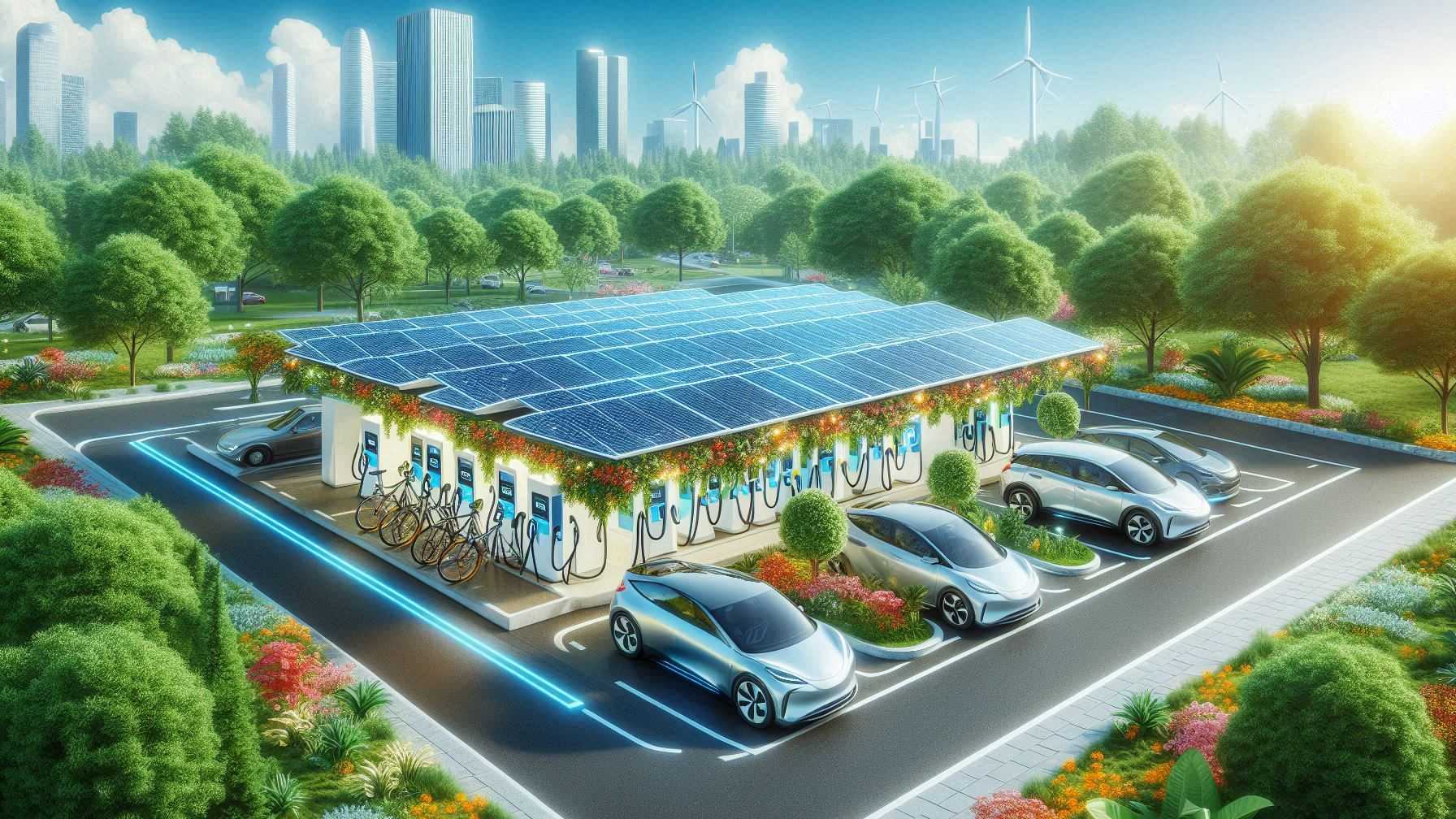Optimal and flexible operation of uncertain EV charging hubs
Mobility Initiative Project

This project develops a flexible, robust and practical approach for the operation of EV charging hubs under uncertainty. Charging hubs combine charging stations for electric vehicles, an electricity grid connection, a battery storage system, and local renewable production. Depending on the use case (near city centers or highways; freight trucks or personal vehicles), charging hubs face several uncertainties, including arrival times, charging demand, energy availability, and electricity prices.
Efficient charging hub operation, namely minimizing the charging duration while keeping investments and operational costs within limits, is essential for the E-mobility transition. Range or charging anxiety represent a real barrier for customers deciding against electric vehicles. Moreover, fleet operators transporting sensitive goods need a reliable charging backbone. Due to limitations on energy availability, electricity grid capacity, and economic factors, the problem solution involves not only the installation of many charging stations, but also the smart operation of charging hubs by exploiting flexibilities of local storage systems, synergies between customer groups and renewable production. Real-time operation must rely on a practical and robust implementation that is flexible and scalable with respect to different charging hub scenarios. Approaches in the literature are often too complex and not suitable for real setups, making it difficult for hub operators to adopt and customize a solution for their case. We propose a lean project to identify, tune and demonstrate such a method for flexible hub environments.
In close collaboration with industry partners, we gather relevant requirements, lessons learned and data from charging hub operations. From our expertise in multi-period scheduling, model predictive control, robust and stochastic optimization, and AI-based tools for electricity grid operations, we identify a suitable operational approach for future charging hubs. A validation with a charging hub demonstrator – as ex-post analysis or digital twin – will ensure the practicality of the solution and pave the way for subsequent field implementation.
Head of Dep. of Inform.Technol. Electrical Eng. / Deputy head of Power Systems and High Voltage Lab. / Head of Energy Science Center (ESC)
Inst. f. El. Energieübertragung
Physikstrasse 3
8092
Zürich
Switzerland

FEN-ETH
Clausiusstrasse 33
8092
Zürich
Switzerland

Partner
- AMAG
- Siemens
Roadmap
01.2025 - 12.2025 (12 months)